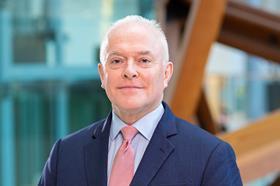The Serious Fraud Office (SFO) is at the vanguard of the efforts to maintain the reputation and integrity of the United Kingdom as an international financial centre. Its work seeks to protect and promote the economy and prosperity of this country. It has a unique role in the Criminal Justice System in that it both investigates and prosecutes significant and complex economic crime. Many of its cases are extremely challenging and can take many years to progress.

The SFO has suffered a number of case failures over the years causing some to call for it to be merged into other prosecuting agencies. Some have even called for its abolition.
While the SFO has indeed suffered setbacks it has also successfully prosecuted all of its last five cases.
At HM Crown Prosecution Service Inspectorate we have a statutory duty to inspect the SFO and CPS objectively and impartially. Our purpose is to drive improvements and build public confidence in our national prosecution bodies.
We have recently concluded an inspection into the SFO, which follows up on our inspection published in 2019 about the SFO’s proficiency in progressing cases.
In this most recent inspection, we assessed progress against the recommendations HMCPSI made to the SFO in 2019. We also considered whether the SFO had made progress in implementing the recommendations made by Sir David Calvert Smith and Brian Altman KC, who had reviewed two significant and high-profile case failures, reporting their findings in 2022.
In 2019 we made seven recommendations to the SFO: three relating to the better management of resources to deliver more efficiently progressed casework; one around training; one recommending greater staff compliance with SFO operating procedures; one which recommended the SFO manage external counsel more consistently; and one relating to a specific issue of a backlog in one of the supporting units, the Digital Forensic Unit.
In our most recent inspection report, we concluded that three of the seven recommendations have been fully met.
The four remaining recommendations we rated as being partially met. While there has been clear evidence of progress, we could not conclude, yet, that the intended impact of the change had been fully embedded in the organisation.
What this follow-up inspection has highlighted is a determination and commitment by the current director, Lisa Osofsky, and her senior team to drive change in light of the recommendations of the 2019 HMCPSI case progression inspection, as well as the Altman and Calvert-Smith reviews.
Some of the behaviours that need to change in the SFO have been embedded in its culture, formed over many years. That is hard for anyone to address but there are very strong signals of perseverance within senior SFO management to transform office culture and see this reform activity through to a successful conclusion.
It is my view that with the strengthened management assurance processes and the more direct challenges, by senior management, to case work decisions, outcomes will improve and the risk of future case failures will reduce.
There is more to do but my overall assessment is that the action taken since 2019 has made a difference and puts the SFO on the right track to tackling some of the difficulties that we identified in 2019 and that were found in the cases reviewed by Calvert-Smith and Altman.
Andrew Cayley KC is HMCPSI chief inspector






























